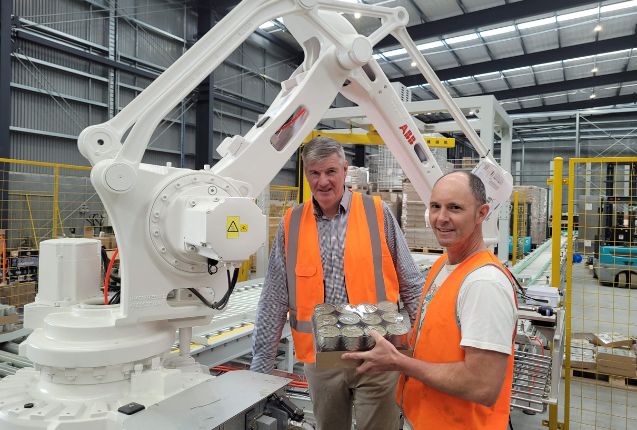The high cost of doing business is the stand-out issue for New Zealand businesses, according to the results of the Deloitte and Chapman Tripp Election Survey – 93% of respondents said changes made by the Government had increased their cost of doing business.
And 85% said they didn’t think the current Government had a plan for improved economic performance.
The Deloitte and Chapman Tripp Election Survey conducted by BusinessNZ is New Zealand’s premier survey of business sentiment in the lead up to the General Election.
Each election year the survey asks businesses their views on current political issues and poses the same questions to New Zealand’s main political parties, so comparisons can be made between business needs and political parties’ promises.
This year 880 businesses and seven political parties (Labour, National, ACT, Green, Te Pāti Māori, NZ First, and TOP) were surveyed.
The results show that the business community’s main concerns are the increased costs of doing business and the lack of a plan for raising New Zealand’s economic performance. Businesses are not in favour of increasing business-related taxes to address the country’s current fiscal challenges. The results also reveal business thinking on infrastructure, resource management and investment – policy areas that can deeply affect the environment for business.
Deloitte Chief Executive Mike Horne said respondents identified major structural challenges that will need to be addressed by any post-election government.
“But some responsibility also lies with the business community to work alongside government to facilitate and support the change that is needed. It can be acknowledged that it is much easier to navigate these shifts in a strong economy – something the post-election government will need to address first.”
Clear views on tax
This year’s survey highlighted a high degree of business interest in tax policy issues and clear views about proposed tax changes.
Respondents were reluctant to endorse proposals for changing business-related tax policy either through introducing a capital gains tax (61% against), wealth tax (67% against) or windfall tax (70% against.) Many were also against changing GST (75% against) or corporate tax (60% against) as part of a policy prescription to address current fiscal challenges.
The compliance cost of business tax was also a significant concern for many, with 64% of respondents saying their tax compliance costs had increased over the last three years.
Businesses have shown that they have a high level of understanding of taxation options and trade-offs, sending a clear message to political parties seeking to raise taxes to address current fiscal challenges.
They have expressed a desire for stability on tax that shows that businesses may see greater value being achieved through enhanced clarity and deliberateness of the spend, rather than increasing the amount available to spend through significant tax change.
Business environment lacking
When asked about proposed policies for infrastructure, resource management and investment – all areas which can affect business growth prospects – respondents expressed doubts.
Businesses ranked the importance of investment in transport infrastructure (4.4/5) higher than in energy infrastructure (3.9/5), telecommunications infrastructure (3.8/5) or water infrastructure (3.3/5), and 74 percent said the Government did not have the balance of infrastructure spending right.
Doubt was expressed by the majority of respondents (80%) that the ‘Three Waters’/Affordable Water proposals would bring economic gains.
More than half (59%) doubted that the replacement legislation for the Resource Management Act would support economic growth while also protecting the environment, while 62% thought not enough was being done to attract foreign direct investment into New Zealand.
On the related question of whether they thought the current Government had a plan for improved economic performance, 85 percent of respondents said that they weren’t aware of one.
Chapman Tripp Chief Executive Partner Pip England said infrastructure, resources and investment were critical issues for the business environment, and all political parties should pay heed to the survey’s findings.
Costs on business
Changes made by the Government had increased the costs of doing business for 93% of businesses surveyed.
Political parties were asked the related question: Do you have any plans to reduce the costs of doing business? and responded with promises for reducing specific costs that differed significantly between parties, while ACT and National also proposed initiatives for reducing the regulatory burden overall.
BusinessNZ Chief Executive Kirk Hope said businesses’ overwhelming view that the compliance and operational costs on business had increased should make all politicians pause for thought.
“New Zealand’s economic growth depends solely on business success, yet increased costs placed on businesses have hampered their ability to succeed. There is a clear need for the new Government of New Zealand to take action on the cost burden on business,” Hope said.
The results of the Deloitte and Chapman Tripp Election Survey conducted by BusinessNZ, are here – https://businessnz.org.nz/resources/deloitte-and-chapman-tripp-election-survey-conducted-by-businessnz/
Insights on the findings of the Election Survey from experts at both Deloitte and Chapman Tripp are here – https://www2.deloitte.com/nz/en/pages/public-sector/topics/2023-election-survey.html



